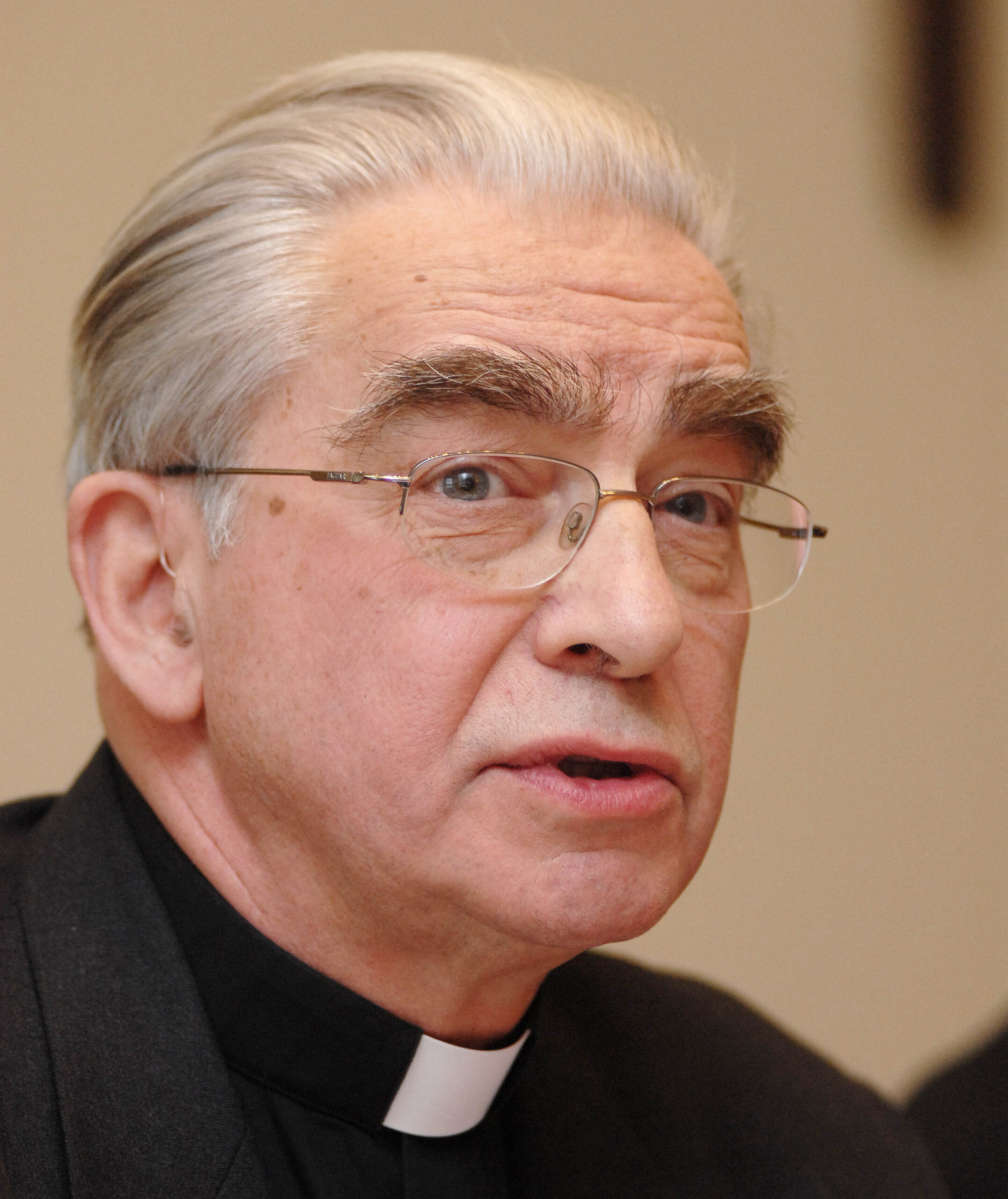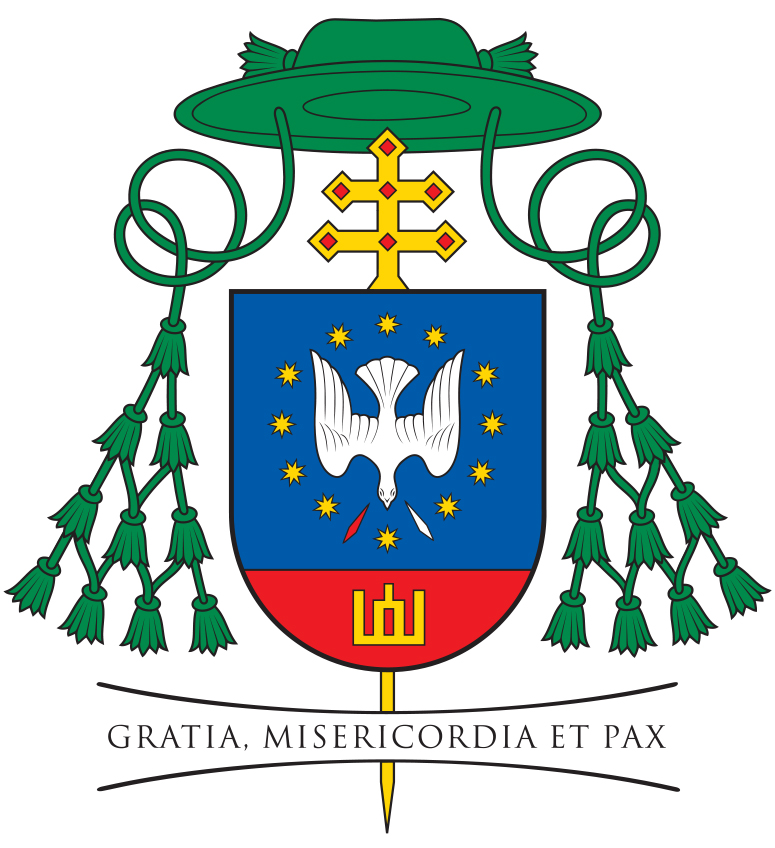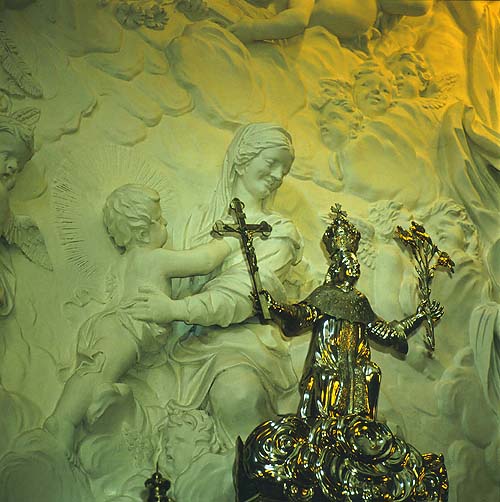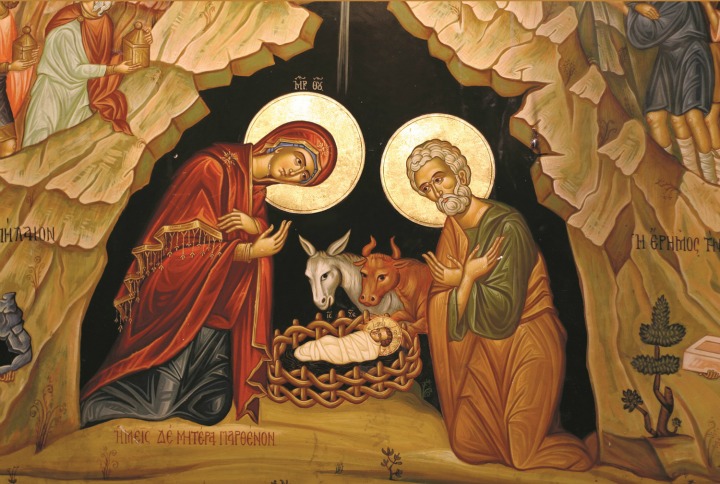Archbishop EMERITUS
Cardinal Audrys Juozas Bačkis
Date of birth: 1937-02-01
Date of priestly ordination: 1961 m.
Date of consecration: 1988-10-04
Audrys Juozas Bačkis was born on February 1st, 1937 in Kaunas into the family of Lithuanian diplomat Dr. Stasys Antanas Bačkis and teacher Ona Galvydaitė-Bačkienė. In September of 1938, the family left for Paris, where Dr. Stasys Bačkis took a position of Lithuanian diplomat. At that time, no one expected that returning to the homeland would take more than 50 years. Audrys Juozas Bačkis completed Catholic High School in Paris and was accepted into the Paris Seminary.
In 1957, he attended St. Casimir’s Lithuanian College in Rome. He completed his studies at the Grigalius University (Gregorianum), where he received a Theology Degree. He was ordained in 1961 and was assigned in the Kaunas Archdiocese. He later lived in Rome until 1964. He received his PhD in Canon Law at the Lateran University. He had also studied at the Holy See’s Diplomatic Academy during his doctoral studies.
In 1964, he was appointed to diplomatic duty at the Holy See. He worked at nunciatures: 1964–1965 in the Philippines, 1966–1968 in Costa Rica, 1969–1970 in Turkey, 1971–1973 in Nigeria. From 1974-1988 he worked at the Vatican’s National Public Affairs Council. From 1979, he was the Assistant Secretary of this Council. He taught Diplomatic Law at the Lateran University.
Alongside his diplomatic responsibilities, he actively participated in pastoral care by assisting at various parishes, collaborated with religious organizations (especially youth and family), led retreats, discussions and so forth.
On October 4th, 1988, Pope John Paul II along with Archbishop Achille Silvestrini and Bishop Juozas Preikšas consecrated Juozas Bačkis as bishop. The Archbishop of Vilnius Julijonas Steponavičius came to Rome for the first time for the celebration. In the same year, he was appointed as a titular Archbishop of Meta and as a Nuncio in Holland.
On December 24th, 1991 Pope John Paul II created a Church Province for Vilnius, and appointed Audrys Juozas Bačkis as Archbishop Metropolitan of Vilnius. He was ordained on March 3rd, 1992. From 1992–1993, he was in charge of Pope John Paul II Apostolic Journey to Lithuania (September 4th-8th, 1993). He chaired the Lithuanian Bishop’s Conference from 1993–1999 and again from 2002–2005. In 1999, he was assigned by Pope John Paul II to be Vice President of the European Bishop’s Synod Member Committee and the final closing presentation. From 1998–2001 he was in charge of the Lithuanian Bishop’s Conference Anniversary Committee.
On February 21st, 2001 he was appointed as Cardinal by the Holy Roman Catholic Church. Since 2001, he is a member of the Catholic Upbringing Congregation. From 2001–2007, he was a member of the Pontifical Church Cultural Heritage Commission. From 1992–2011 he was a member of the Pontifical Societal Communication Committee.
In 1993, he re-established the Vilnius Seminary. In the same year, due to his initiative, a Theology Department was established at the Vilnius Pedagogical Institute, where Religion teachers were trained. He has been a patron of the Faith and Light Community, which helps unite families who are raising disabled children. He has done so since he first arrived in Vilnius. He helped to build Versmė School, which provides integrated Catholic-oriented education where children with disabilities study together with healthy children. He is the Spiritual Father of this school. In 1992, he established the Betanija Food Shelter which feeds about 500 people cost-free every day. Approximately 100 children from large or troubled families are fed at the Caritas cafeteria also run by the Archdiocese. In 1996, the Mother-Child Home was established. Young, marginalized, homeless, unmarried women live there. In 1999, the Mother of Mercy shelter was opened. Mother Teresa’s sisters feed approximately 150 people there, and treat sick, homeless people. In the same building, there are about 50 homeless people that take warm shelter there for the night. Caritas continues to expand their organization’s activities through parishes, they collect donations for the homeless and encourage sharing bread and love. Caritas staff often visits hospitals, prisons and nursing homes. In 1994, the Family Center was established. Couples attend Pre-Cana classes there. They receive spiritual and psychological consultation.
In 1997, the Trinapolis Retreat House was created where there are regular retreats for children, adolescents, group, clergy, and even for individuals. In 1999, the Vilnius Archdiocese Pastoral Care Center was opened, where various Catholic organizations meet. In 2001, a Trade-Craft Center was opened where professional craftsmen help young individuals learn the crafts of carpentry, jewelry-making, building and restoring, cook, tailor or seamstress. In 2001, in memory of his father, Dr. Stasys Bačkis, a chapel was built at Vilnius University’s Santariškių Clinics with funds from his late father’s estate and other donations.
On April 30th,1997, Vilnius Pedagogical University granted Archbishop Bačkis an honorary Doctorate. On February 16th, 2000, he received a Second Degree Order of Grand Duke Gediminas. On February 16th, 2003, he was presented with the Vytautas Didysis Order’s Great Cross. On May 13th, 2003, he received an Honorary Doctorate from Krakow’s Pontifical Theological Academy.
On April 5th, 2013, he resigned according to the rule of Canon Law, which was approved by Pope Francis. He continued his obligations until the ordination of Gintaras Grušas as Archbishop of Vilnius on April 23rd.

The Archbishop Metropolitan of Vilnius Gintaras Grušas’ COAT OF ARMS
 Jau aštuoni šimtmečiai, kai popiežius ir kiti Bažnyčios hierarchai naudoja asmeninius herbus. Herbo simbolika išreiškia herbo turėtojo gyvenimo idealą, veiklos programą ar nurodo į kokį nors svarbų gyvenimo momentą. Ji taip pat nurodo herbo savininko turimus titulus, rangą ir pan.
Jau aštuoni šimtmečiai, kai popiežius ir kiti Bažnyčios hierarchai naudoja asmeninius herbus. Herbo simbolika išreiškia herbo turėtojo gyvenimo idealą, veiklos programą ar nurodo į kokį nors svarbų gyvenimo momentą. Ji taip pat nurodo herbo savininko turimus titulus, rangą ir pan.
Vilniaus arkivyskupo metropolito Gintaro Grušo herbo skydo mėlyname lauke vaizduojamas sidabro spalvos nuleistais sparnais žemyn skrendantis balandis, simbolizuojantis Šventąją Dvasią, ir dvylika auksinių žvaigždžių – Švč. Mergelės Marijos simbolis. Du spinduliai, sidabrinis ir raudonas, primena Dievo gailestingumą, kuris per Šventąją Dvasią veikia Bažnyčioje. Apatiniame raudoname skydo lauke – auksiniai Gedimino stulpai, seniausias Lietuvos valstybės simbolis.
Galeras (skrybėlė) su virvelėmis ir kutais nurodo herbo turėtojo rangą. Žalias galeras su žaliomis virvelėmis ir keturios eilės kutų abejose pusėse byloja, kad šis herbas yra arkivyskupo. Už herbo skydo esantis pastoralas su dvigubu kryžiumi ilgesne apatine kryžma rodo herbo turėtojo hierarchinį arkivyskupo laipsnį.
Herbo apatinėje dalyje esantis šūkis (devizas) skelbia: „Gratia, Misericordia et Pax“ (Malonė, gailestingumas ir ramybė). Herbo skydo baltos ir raudonos spalvos spinduliai, simbolizuojantys Dievo gailestingumą, yra aliuzija į šventajai seseriai Faustinai Vilniuje įvykusį apsireiškimą ir pagal tai nutapytą Dievo Gailestingumo paveikslą. Raudonos, mėlynos ir baltos spalvų derinys primena JAV, šalį, kurioje arkivyskupas gimė ir augo, o mėlyna herbo skydo spalva su dvylika auksinių žvaigždžių sietina su Europos Sąjunga, kuriai priklauso Lietuva.
Secretariat:
Kalvarijų g. 331A
LT-08420 Vilnius
Mob. +370 682 45665
E-mail: subtuum@vilnensis.lt
Archbishop EMERITUS
Cardinal Audrys Juozas Bačkis

The Archbishop Metropolitan of Vilnius Gintaras Grušas’ COAT OF ARMS
 Jau aštuoni šimtmečiai, kai popiežius ir kiti Bažnyčios hierarchai naudoja asmeninius herbus. Herbo simbolika išreiškia herbo turėtojo gyvenimo idealą, veiklos programą ar nurodo į kokį nors svarbų gyvenimo momentą. Ji taip pat nurodo herbo savininko turimus titulus, rangą ir pan.
Jau aštuoni šimtmečiai, kai popiežius ir kiti Bažnyčios hierarchai naudoja asmeninius herbus. Herbo simbolika išreiškia herbo turėtojo gyvenimo idealą, veiklos programą ar nurodo į kokį nors svarbų gyvenimo momentą. Ji taip pat nurodo herbo savininko turimus titulus, rangą ir pan.
Vilniaus arkivyskupo metropolito Gintaro Grušo herbo skydo mėlyname lauke vaizduojamas sidabro spalvos nuleistais sparnais žemyn skrendantis balandis, simbolizuojantis Šventąją Dvasią, ir dvylika auksinių žvaigždžių – Švč. Mergelės Marijos simbolis. Du spinduliai, sidabrinis ir raudonas, primena Dievo gailestingumą, kuris per Šventąją Dvasią veikia Bažnyčioje. Apatiniame raudoname skydo lauke – auksiniai Gedimino stulpai, seniausias Lietuvos valstybės simbolis.
Galeras (skrybėlė) su virvelėmis ir kutais nurodo herbo turėtojo rangą. Žalias galeras su žaliomis virvelėmis ir keturios eilės kutų abejose pusėse byloja, kad šis herbas yra arkivyskupo. Už herbo skydo esantis pastoralas su dvigubu kryžiumi ilgesne apatine kryžma rodo herbo turėtojo hierarchinį arkivyskupo laipsnį.
Herbo apatinėje dalyje esantis šūkis (devizas) skelbia: „Gratia, Misericordia et Pax“ (Malonė, gailestingumas ir ramybė). Herbo skydo baltos ir raudonos spalvos spinduliai, simbolizuojantys Dievo gailestingumą, yra aliuzija į šventajai seseriai Faustinai Vilniuje įvykusį apsireiškimą ir pagal tai nutapytą Dievo Gailestingumo paveikslą. Raudonos, mėlynos ir baltos spalvų derinys primena JAV, šalį, kurioje arkivyskupas gimė ir augo, o mėlyna herbo skydo spalva su dvylika auksinių žvaigždžių sietina su Europos Sąjunga, kuriai priklauso Lietuva.
Date of birth: 1937-02-01
Date of priestly ordination: 1961 m.
Date of consecration: 1988-10-04
Secretariat:
Kalvarijų g. 331A
LT-08420 Vilnius
Mob. +370 682 45665
E-mail: subtuum@vilnensis.lt
Audrys Juozas Bačkis was born on February 1st, 1937 in Kaunas into the family of Lithuanian diplomat Dr. Stasys Antanas Bačkis and teacher Ona Galvydaitė-Bačkienė. In September of 1938, the family left for Paris, where Dr. Stasys Bačkis took a position of Lithuanian diplomat. At that time, no one expected that returning to the homeland would take more than 50 years. Audrys Juozas Bačkis completed Catholic High School in Paris and was accepted into the Paris Seminary.
In 1957, he attended St. Casimir’s Lithuanian College in Rome. He completed his studies at the Grigalius University (Gregorianum), where he received a Theology Degree. He was ordained in 1961 and was assigned in the Kaunas Archdiocese. He later lived in Rome until 1964. He received his PhD in Canon Law at the Lateran University. He had also studied at the Holy See’s Diplomatic Academy during his doctoral studies.
In 1964, he was appointed to diplomatic duty at the Holy See. He worked at nunciatures: 1964–1965 in the Philippines, 1966–1968 in Costa Rica, 1969–1970 in Turkey, 1971–1973 in Nigeria. From 1974-1988 he worked at the Vatican’s National Public Affairs Council. From 1979, he was the Assistant Secretary of this Council. He taught Diplomatic Law at the Lateran University.
Alongside his diplomatic responsibilities, he actively participated in pastoral care by assisting at various parishes, collaborated with religious organizations (especially youth and family), led retreats, discussions and so forth.
On October 4th, 1988, Pope John Paul II along with Archbishop Achille Silvestrini and Bishop Juozas Preikšas consecrated Juozas Bačkis as bishop. The Archbishop of Vilnius Julijonas Steponavičius came to Rome for the first time for the celebration. In the same year, he was appointed as a titular Archbishop of Meta and as a Nuncio in Holland.
On December 24th, 1991 Pope John Paul II created a Church Province for Vilnius, and appointed Audrys Juozas Bačkis as Archbishop Metropolitan of Vilnius. He was ordained on March 3rd, 1992. From 1992–1993, he was in charge of Pope John Paul II Apostolic Journey to Lithuania (September 4th-8th, 1993). He chaired the Lithuanian Bishop’s Conference from 1993–1999 and again from 2002–2005. In 1999, he was assigned by Pope John Paul II to be Vice President of the European Bishop’s Synod Member Committee and the final closing presentation. From 1998–2001 he was in charge of the Lithuanian Bishop’s Conference Anniversary Committee.
On February 21st, 2001 he was appointed as Cardinal by the Holy Roman Catholic Church. Since 2001, he is a member of the Catholic Upbringing Congregation. From 2001–2007, he was a member of the Pontifical Church Cultural Heritage Commission. From 1992–2011 he was a member of the Pontifical Societal Communication Committee.
In 1993, he re-established the Vilnius Seminary. In the same year, due to his initiative, a Theology Department was established at the Vilnius Pedagogical Institute, where Religion teachers were trained. He has been a patron of the Faith and Light Community, which helps unite families who are raising disabled children. He has done so since he first arrived in Vilnius. He helped to build Versmė School, which provides integrated Catholic-oriented education where children with disabilities study together with healthy children. He is the Spiritual Father of this school. In 1992, he established the Betanija Food Shelter which feeds about 500 people cost-free every day. Approximately 100 children from large or troubled families are fed at the Caritas cafeteria also run by the Archdiocese. In 1996, the Mother-Child Home was established. Young, marginalized, homeless, unmarried women live there. In 1999, the Mother of Mercy shelter was opened. Mother Teresa’s sisters feed approximately 150 people there, and treat sick, homeless people. In the same building, there are about 50 homeless people that take warm shelter there for the night. Caritas continues to expand their organization’s activities through parishes, they collect donations for the homeless and encourage sharing bread and love. Caritas staff often visits hospitals, prisons and nursing homes. In 1994, the Family Center was established. Couples attend Pre-Cana classes there. They receive spiritual and psychological consultation.
In 1997, the Trinapolis Retreat House was created where there are regular retreats for children, adolescents, group, clergy, and even for individuals. In 1999, the Vilnius Archdiocese Pastoral Care Center was opened, where various Catholic organizations meet. In 2001, a Trade-Craft Center was opened where professional craftsmen help young individuals learn the crafts of carpentry, jewelry-making, building and restoring, cook, tailor or seamstress. In 2001, in memory of his father, Dr. Stasys Bačkis, a chapel was built at Vilnius University’s Santariškių Clinics with funds from his late father’s estate and other donations.
On April 30th,1997, Vilnius Pedagogical University granted Archbishop Bačkis an honorary Doctorate. On February 16th, 2000, he received a Second Degree Order of Grand Duke Gediminas. On February 16th, 2003, he was presented with the Vytautas Didysis Order’s Great Cross. On May 13th, 2003, he received an Honorary Doctorate from Krakow’s Pontifical Theological Academy.
On April 5th, 2013, he resigned according to the rule of Canon Law, which was approved by Pope Francis. He continued his obligations until the ordination of Gintaras Grušas as Archbishop of Vilnius on April 23rd.




